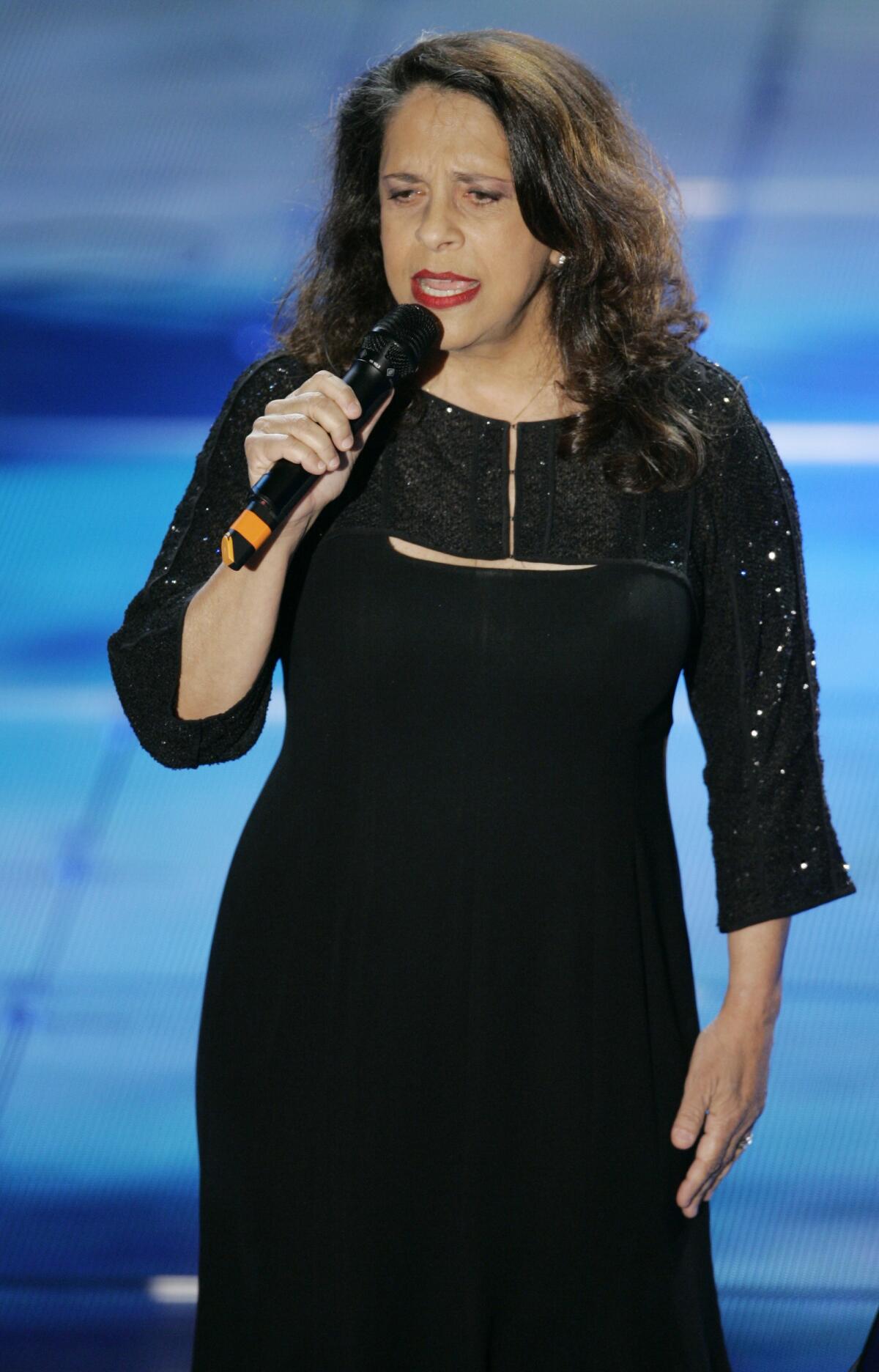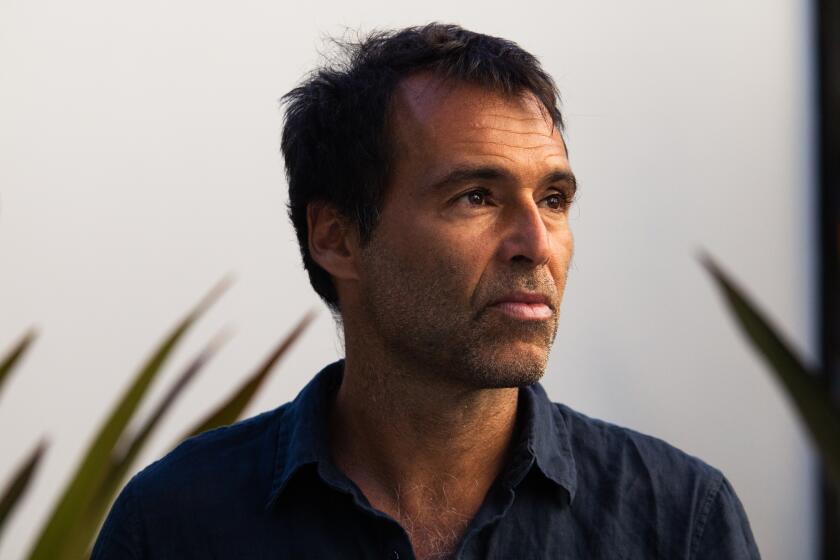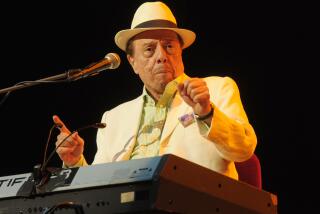Singer Gal Costa, icon of Brazil’s Tropicália movement, remembered by Caetano Veloso

- Share via
Gal Costa, an adventurous musician who was a pivotal figure in Brazil’s Tropicália movement in the 1960s, has died. She was 77.
Costa, born Maria da Graça Penna Burgos, died Wednesday, according to the Associated Press, which cited a press representative for the singer. No cause of death or additional details were provided.
“It is with deep sadness and a broken heart that we announce the death of singer Gal Costa this Wednesday morning, Nov. 9, in São Paulo,” said a statement posted to her official Instagram account. “Details on her wake and funeral will be shared at a later date. We appreciate everyone’s caring thoughts during this very difficult time.”
According to CNN, Costa had been recovering from a nasal surgical procedure over the last three weeks and was scheduled to perform at the Primavera Sound festival in São Paulo last weekend. But she had to cancel, and her next concert was scheduled for Dec. 17, the AP reported.
There were so many things right about the idea behind Wednesday’s tribute to Brazilian composer Antonio Carlos Jobim at the Hollywood Bowl that it was hard to understand how the concert itself could have gone so wrong.
The iconic singer, who was well known for her fusion of different genres, burst onto the Brazilian music scene alongside future legends Caetano Veloso, Gilberto Gil and Maria Bethânia. Costa was also a prominent proponent of Brazil’s Tropicália (or Tropicalismo) movement, which blended musical styles in the 1960s, including traditional and avant-garde sounds.
“I was born wanting to sing, wanting to be a singer,” Costa said in a 2020 interview with Sounds and Colours. “I always thought I would be one — I had this intuition and I wanted it. [I knew it from] when I was born. When I started to understand myself as an individual I already wanted to be [a professional singer].”
Born Sept. 26, 1945, in the capital of the state of Bahia, Costa began singing professionally in 1964 and released “Domingo,” a collaborative album with Veloso that included the classic “Coração Vagabundo,” in 1967. Her self-titled solo album followed two years later and veered away from acoustic bossa nova to explore psychedelic textures mixed with lush orchestrations.

Recording in Portuguese, Spanish and English and performing at numerous festivals, exhibitions and concerts, Costa sang compositions such as Ary Barroso’s “Aquarela do Brasil,” Tom Jobim’s “Dindi,” Jorge Ben Jor’s “Que Pena” and Veloso’s “Baby.”
In Los Angeles, Costa performed at a 2005 tribute to late Brazilian composer Antonio Carlos Jobim at the Hollywood Bowl alongside Ivan Lins, Luciana Souza and Eliane Elias, and guitarist Oscar Castro-Neves.
Costa was awarded a Latin Grammy Lifetime Achievement Award by the Latin Recording Academy in 2011. She recorded more than 35 albums in her six-decade career, including her 1981 multi-platinum double album “Fantasia,” which was among her biggest hits.
Samba-funk artist Rogê performs at the Hollywood Bowl this weekend: “I’m prouder of being a Brazilian here, because I’m bringing Americans my culture.”
“I feel gratified because I came around with a style that was very mine, but now I can see that my work influenced a generation, that I influenced a lot of people,” she said in 2020. “It makes me realize that my work has been fruitful. Working with music is amazing not only because we give people a lot of great things — the energy of music touches their souls, which is very important — but also because it engenders fruits, since people look at your story and get somehow inspired by it. This is very gratifying.”
Brazil’s President-Elect Luiz Inácio Lula da Silva was among those who paid tribute to the beloved star Wednesday.
“Gal Costa was among the world’s best singers, among our principal artists to carry the name and sounds of Brazil to the whole planet,” he tweeted. “Her talent, technique and courage enriched and renewed our culture, cradled and marked the lives of millions of Brazilians.”

Some of Costa’s contemporaries also paid their respects on social media. Bethânia, who sang with Costa over the years, including a memorable duet of “Sonho Meu,” posted a tribute video on Instagram in which she discussed Costa.
Frequent collaborator Veloso, who posted a video of him and Costa performing, also remembered the singer as “a girl who lived on Rua Rio de São Pedro in Graça” and made plans to relisten to her 2011 album, “Recanto,” which he wrote and produced.
“The most touching thing was the emission of the voice. João Gilberto, Antonio Carlos Jobim and I realized this,” Veloso wrote in Portuguese on Instagram.
“There are many other aspects in which Brazilian music found itself enhanced by female voices. But the emission of the voice in Gal was already music, independently of the conscious mastery of the notes. And that made her spirit express subtleties, thoughts, feelings, harshness, sweetness, in a spontaneous way.”
More to Read
The biggest entertainment stories
Get our big stories about Hollywood, film, television, music, arts, culture and more right in your inbox as soon as they publish.
You may occasionally receive promotional content from the Los Angeles Times.










